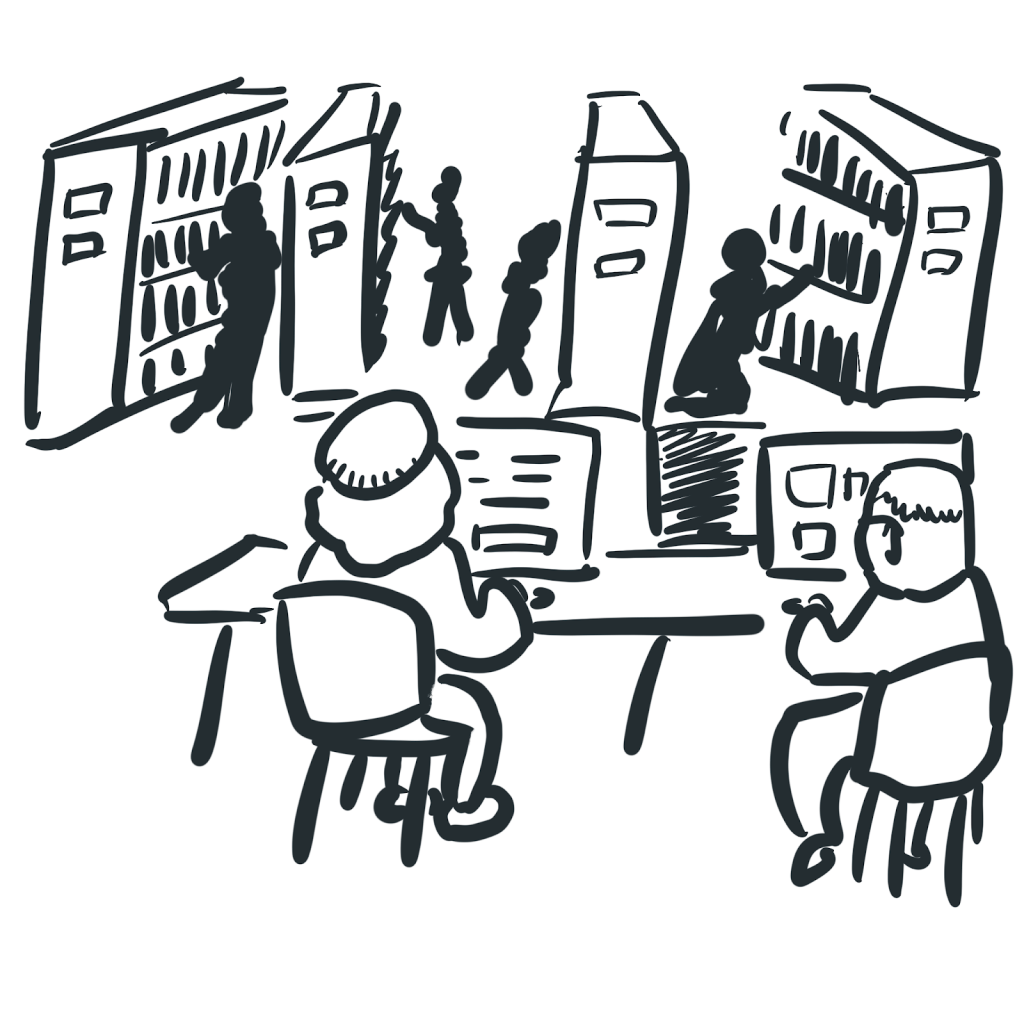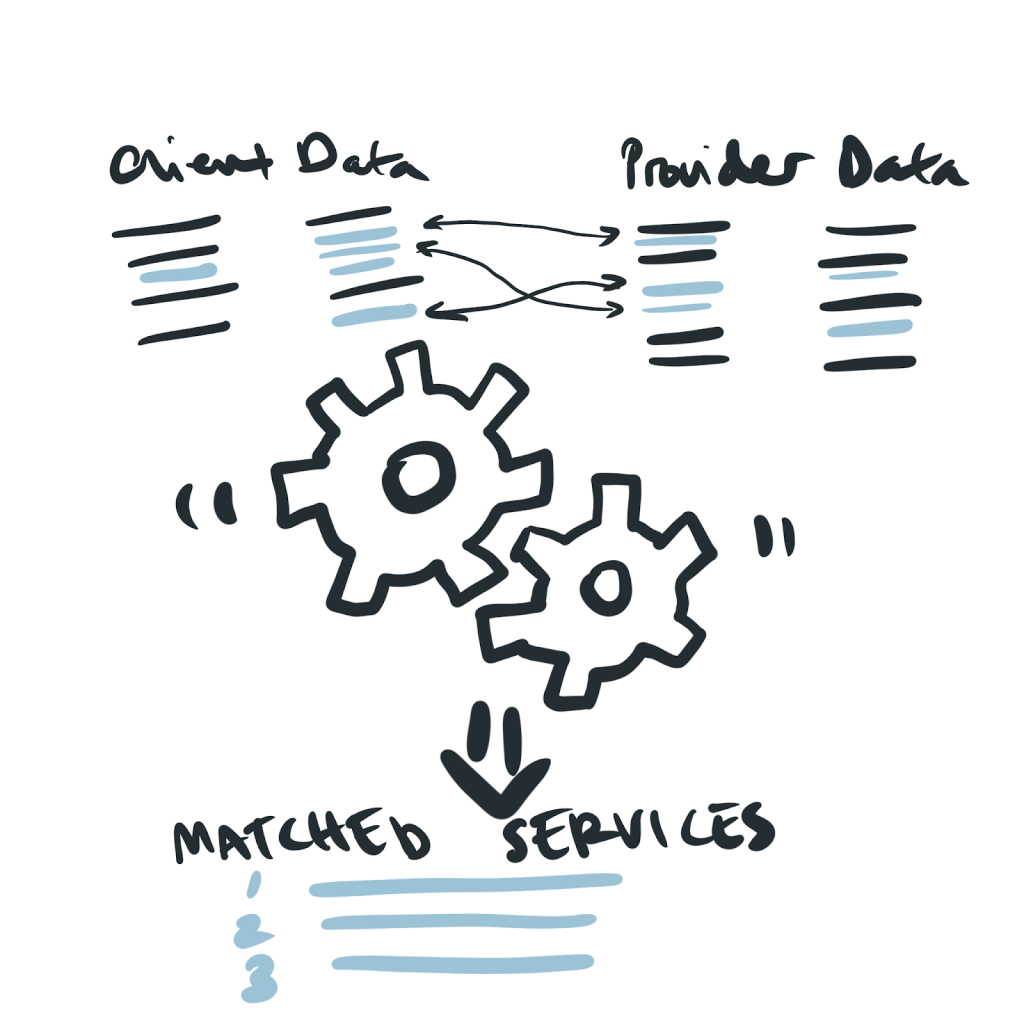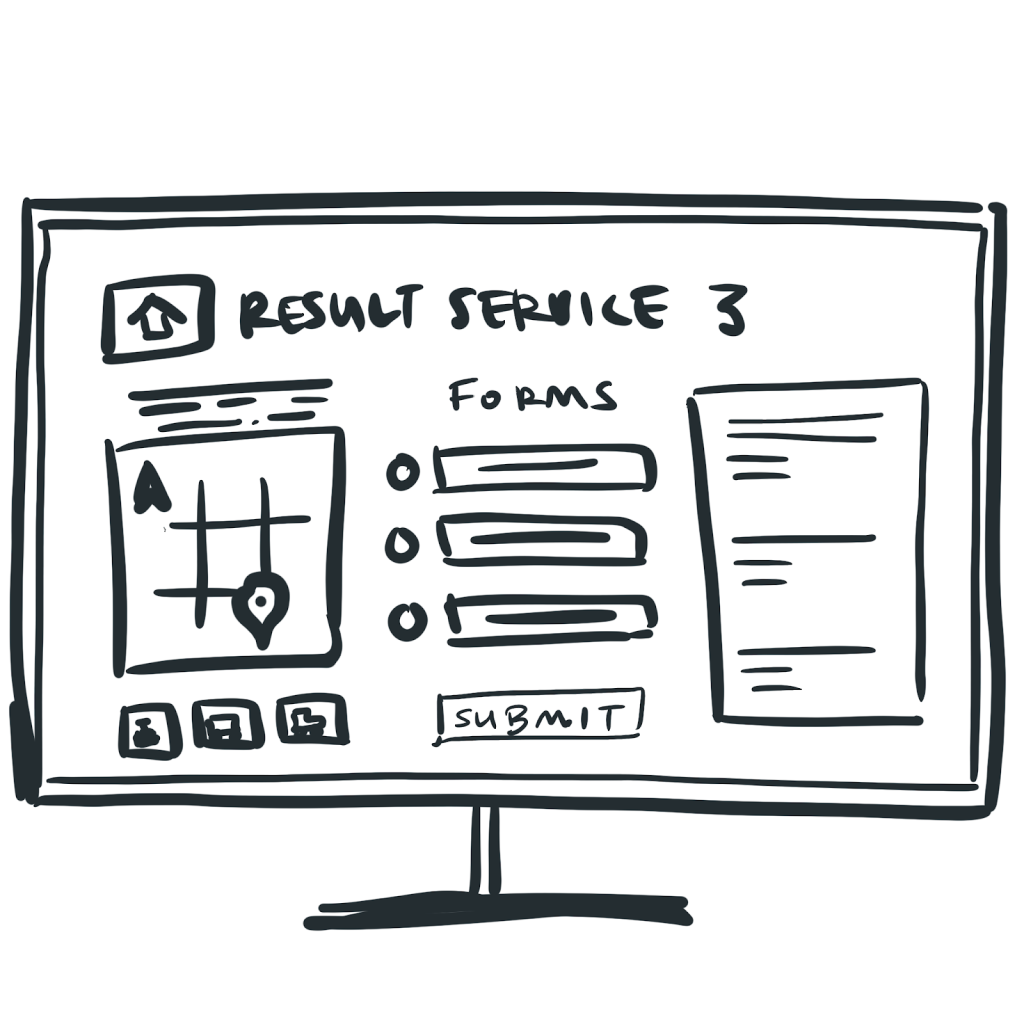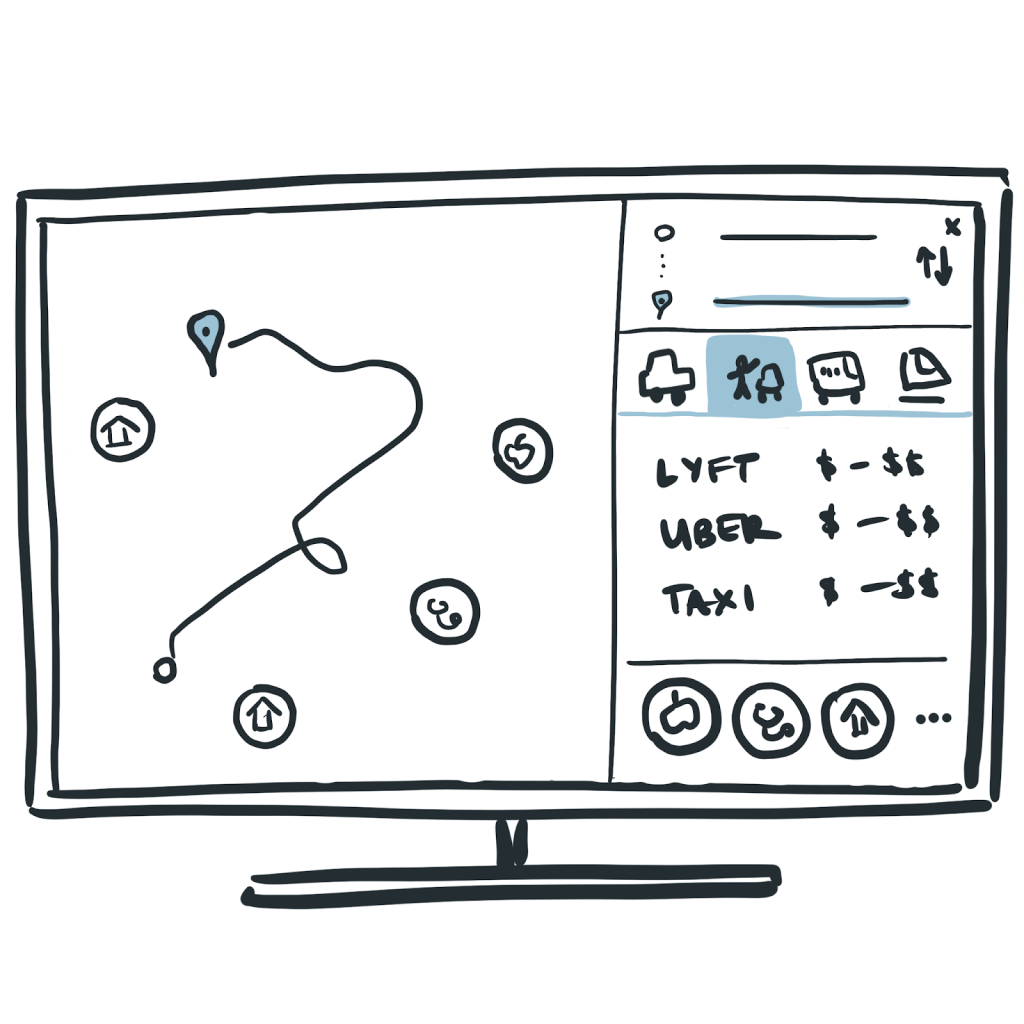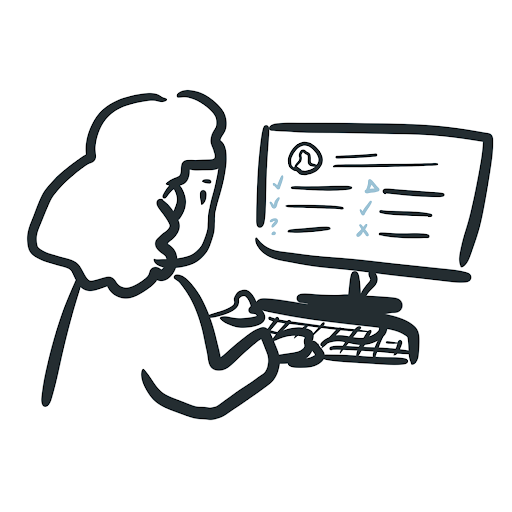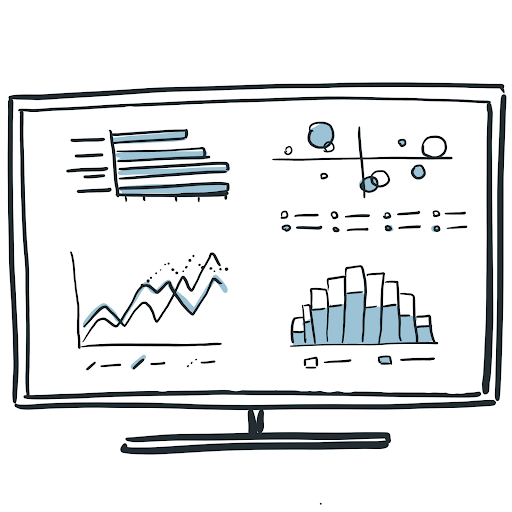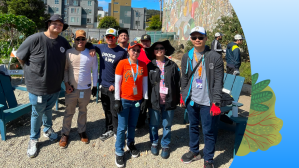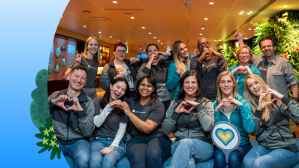What if the world’s leading engineers, community experts, and governments collaborated on building products optimized to address social challenges?
That’s exactly the question a group of Salesforce leaders asked themselves in 2019.
Cheryl Timoney, Senior Director of Tech for Social Impact, and Amy Guterman, Director, Impact Labs at Salesforce.org, had spent their careers merging technology and design with social impact, and talking with community members about how they could apply technology to better serve other organizations’ missions.

Cheryl Timoney, Tech for Social Impact 
Amy Guterman, Impact Labs
What we saw was our community members had some really amazing ideas for how Salesforce technology could amplify their impact. The challenge is that nonprofits rarely had the resources, time, money, or technical expertise to be able to make these incredible ideas for innovations a reality.”
Amy Guterman, Director, Impact Labs, Salesforce.org
Timoney, Guterman, and a host of other leaders at Salesforce.org realized this challenge was something Salesforce could solve for. With Salesforce’s vast network, they could bring together both community and technology experts (in the form of Salesforce pro bono volunteers), to co-create technology that could tackle social challenges and help better serve the community. Impact Labs was born.
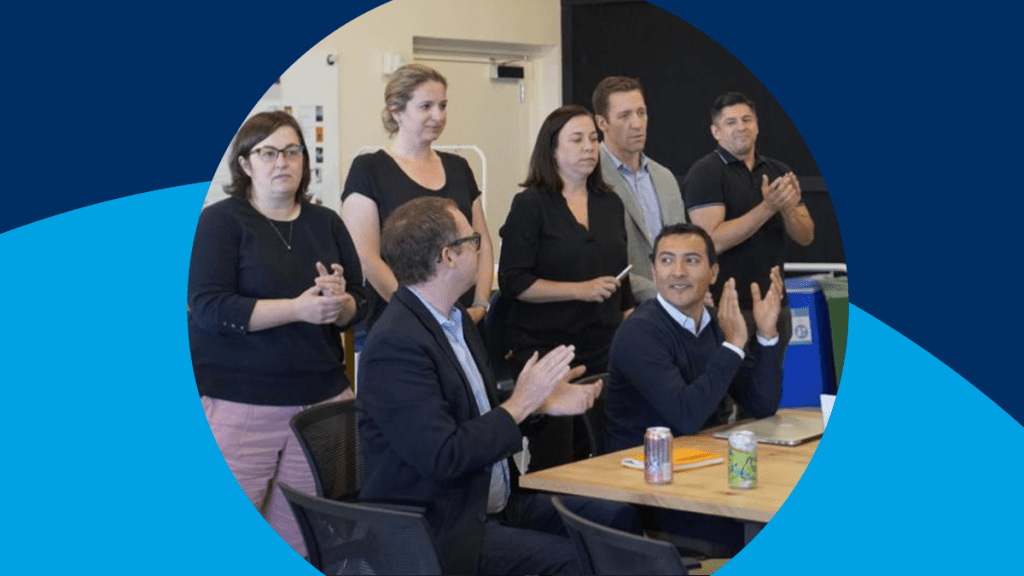
The goal of each Impact Lab was to identify community challenges with the most potential for scalable impact, and bring together subject matter experts and Salesforce pro bono volunteers to ideate and co-design a technology solution to help tackle the challenge together.
The inaugural Impact Lab brought together over 40 subject matter experts and technology professionals, using their unique backgrounds and skill sets to build a technology to help support a very critical social issue: Homelessness.
Addressing homelessness in the Bay Area
At Dreamforce 2019, the Impact Labs team held an open call for challenges to tackle, asking the community what topics they should address in collaboration with the community. (Editor’s Note: The submission form is still open; anyone can submit ideas for consideration for future labs here). One of the guiding principles in determining which issue to choose is aligning the work to the UN’s Sustainable Development Goals (SDGs).
After receiving more than 500 responses, the team identified a topic frequently surfacing to the top and very relevant to the bay area: affordable housing and homelessness. This lab was aligned to SDG 11.
More than half a million people in the United States experience homeless each year, according to the National Alliance to End Homelessness. California alone is home to 47% of all unsheltered homeless people in the country, informing the decision to focus initially in the Bay Area. Not to mention, the challenges of homelessness are only further personified by a global pandemic. Gavin Pham, design researcher at Salesforce and pro bono volunteer in this year’s cohort agrees, “Whether or not we’re in a pandemic, the reality is that there’s homeless people and they will always need help.”
I’m hoping to see a product that truly helps people in need. We have a kind of archaic system, and we need to help families smoothly navigate the resources in the Bay Area and help them to get stable.
Andrew Brannegan, Hamilton Families
From Pham’s perspective, there are opportunities for technology to help improve the experience of someone who is unhoused, getting the support they need to become housed and stabilized. Technology provides efficiencies to a resource-constrained and often silo-ed sector, making a stressful, challenging, circuitous experience a little more streamlined and human-centered.
Bringing in the experts
Impact Labs leveraged design thinking principles — a human-centered, iterative process — to identify challenges and co-create solutions with different groups that bring in specific areas of expertise.
Throughout the process, the team conducted interviews and collaborative work sessions with experts, people who have experienced homelessness, and front-line staff. One of these groups are community fellows, community members with subject matter expertise in the field of affordable housing and homelessness. The first Impact Lab cohort brought in 19 community fellows – including service providers, educators, government, and funders.
Amardeep Prasad, Interim Director, Office of Civic Innovation, City and County of San Francisco, says, “I believe that in order to create cities and communities that thrive, we must work together across sectors and silos like the one Salesforce is creating through this Impact Lab.”
The other is Salesforce’s pro bono volunteers, providing a fresh perspective on how we approach the research, design, and technology for solutions, based on the experience in their day jobs. 17 pro bono volunteers who are experts in design, development, engineering, architecture, and beyond joined this Impact Lab to bring the innovative ideas from the community to life. They contributed over 840 hours of volunteer time, valuing over $160,000.
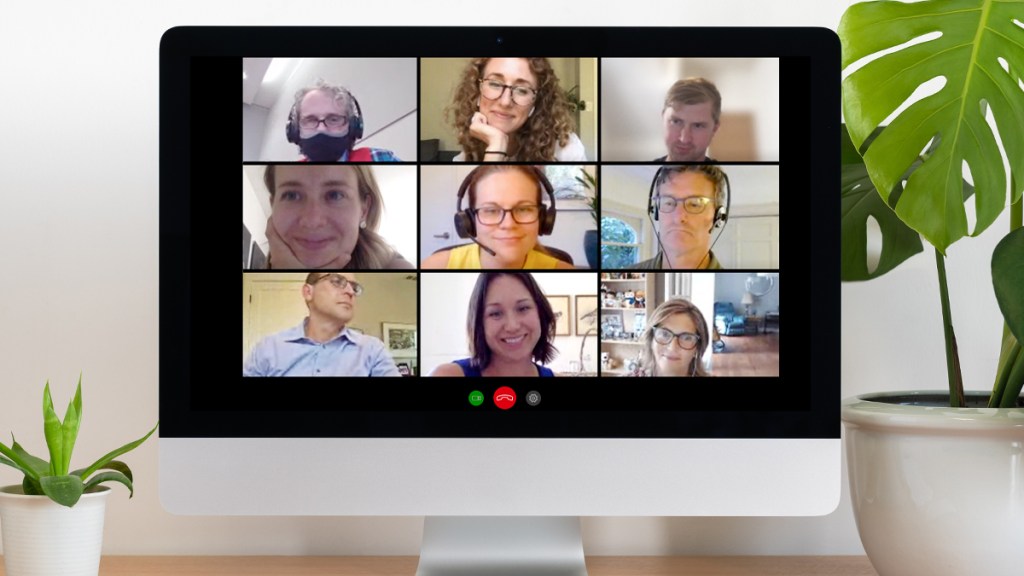
Identifying the problem and finding a solution
In the Bay Area, there was already incredible work being done to address homelessness by organizations and educational institutions like Hamilton Families, Larkin Street Youth Services, Compass Family Services, CSU East Bay and many more. When determining Salesforce’s role in finding new solutions, Impact Labs’ goal was to complement and add value to the work that exists, focusing on finding new ways technology can help.
The team began extensive research, and sought to better understand where there were gaps or silos in how organizations supported the homeless community. While technology alone won’t solve homelessness, it can help those who are working to address the issue amplify their impact, often called ‘case managers.’
“We wanted to talk to people who had their boots on the ground, like case managers or people who may have experienced homelessness in the past, to better understand and empathize with them on the problems that they face and pain points in their day to day lives,” says Pham.
The team started with spending time in the field with case managers, and talking to people who have experienced homelessness, as well as reading as much as possible to understand the problem better and where there might be some areas technology could play. Three key focus areas emerged — creating a connected experience, improving findability of available housing and human services and capturing and leveraging data to predict success.
Creating a connected experience
Systems are siloed, meaning that a person who is experiencing homelessness needs to retell their traumatic stories across every agency and support system they visit. At a constituent level, this can be dehumanizing; at a government level, this means the data on the reality of the crisis is often inaccurate.
Improving findability
Someone who’s never experienced homelessness or worked as a service provider may assume that finding available housing and services is as simple as conducting a Google search or tapping into a special database. However, because of a lack of trusted and unified resources, moving goalposts with eligibility requirements, and broad regions, finding services is an unreliable and surprisingly manual process. The result is often wasted time and dead-end searches that lead to missed opportunities for housing or services.
Leveraging data to predict success
Today, information is often reported one-way: From front-line staff to government, funders or leadership. One-way reporting leads to frustration from case managers who don’t see the fruits or feedback from their arduous data collection. There’s an opportunity to provide a feedback loop to provide predictions and recommendations toward better outcomes.
After better understanding these challenges, the team got to work in partnership with the community fellows to participate in sprints—a series of events where the group was laser- focused on testing and building technology solutions on top of the Salesforce platform. This allowed the volunteers time for iteration, experimentation and a dedicated space for problem solving.
The result was to support case managers through improved findability of human services. Case managers are supporting clients in a multitude of ways from checking in, to recommending services, tracking outcomes and so much more. Many of their processes are reliant on analog individual data entry, and incredibly time consuming spreadsheet work. To better serve more clients, the Impact Labs team realized how important time savings would be to a case manager.
The Technology
Through collaborative work sessions, deep user research, and surveying technology challenges nonprofit organizations faced, it was time to brainstorm, prototype, and iterate on potential solutions.
The team found that paperwork and crisis response left case managers with little time to support long-term client needs. To make matters worse, finding services that match client needs is often time-consuming and involved toggling back and forth between multiple systems. Once a referral had been made, it was hard to know if clients get the support they needed because large caseloads made manual follow up nearly impossible.
To address these challenges, the team built Service Match which allows case managers to streamline finding and recommending human services to their clients by leveraging client data already stored in Salesforce. Service Match is built on the Salesforce platform and includes integration with existing service directories, like One Degree, smart service recommendations, automated SMS referral reminders and client referral tracking.
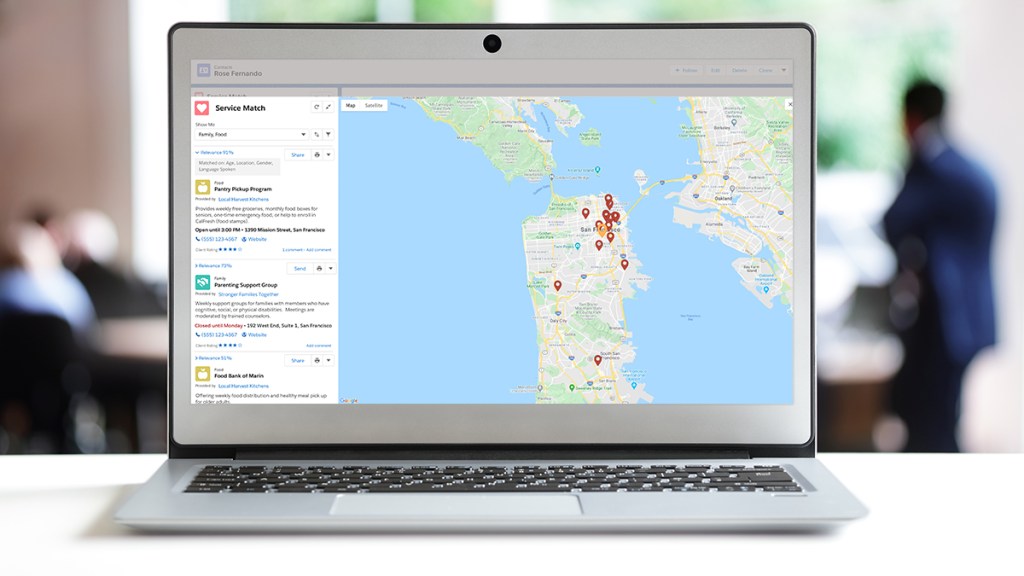
With a single click, case managers can generate a list of services based on a client’s needs. Case managers can use a single system to view client history, find potential service providers, send referrals to clients by text and email, and track referral outcomes. Automated texts and emails remind clients to take action on referrals and give feedback on providers.
Service Match takes in search criteria and provides recommendations based on zip code, age and more factors. This tool helps with the ongoing value of the product — as the case managers continue to use this and get feedback from clients about how the service works, this feeds back into the recommendation engine.
A sketch of an earlier iteration of the solution, Personalized Service Recommendations, that evolved into Service Match:
Andrew Irwin, a demo engineer at Salesforce and pro bono volunteer, is most excited to see how this product evolves when it’s opened up as an open source product. “The team specifically identified one service aggregator, but the hope is others will want to join and use this package, which means there’s so much more potential for impact.”
An important piece of building this package was ensuring it could be sustainable beyond the cohort. Smaller nonprofits may not have access to the resources and admins and developers as larger enterprise customers, so it was important to build an architecture that would be an accessible tool without being a developer. Shane McLaughlin, who works on the Salesforce Platform and is another pro bono volunteer, said that while there were some instances where it would have been easier to write code, they chose the more difficult path to make it easy for an organization to customize on their own.
McLaughlin is most interested to see how this tool can help case managers support more clients.
I want case managers to spend more time talking to people, and less time scrolling and clicking.
Shane McLaughlin, Salesforce pro bono volunteer
The Outcome
At the conclusion of the six-month journey, the Impact Labs team developed Service Match which was released in February 2021, and is open source and free to download.
To keep track of their findings and share with other nonprofits and geographies, the team created a research report highlighting opportunities and insights for leveraging technology to address challenges in affordable housing and homelessness. This report outlines insights and opportunities for the affordable housing and homelessness sector to improve the journey for people who have experienced homelessness across the lifecycle of entering homelessness to stabilizing and finding housing.
“We wanted to pull together all of those findings in a research report because our hope is that not only do we build a technology solution on our platform that helps our stakeholders advance, but that we share and articulate those learnings so that other companies, other government institutions, other entities who are looking at these issues, can leverage our research findings and build off of those,” says Timoney, Sr Director, Tech for Social Impact.
It includes findings from organizations in the San Francisco Bay Area and is intended to support organizations in the sector in understanding challenges and opportunities where technology can support improvements. Given the mission of Salesforce.org Impact Labs, this report specifically focuses on where technology can play a role; however, additional housing and policy change is necessary to fully address homelessness.
Bringing together a group of people from diverse backgrounds to find solutions for difficult issues is part of the special sauce of Impact Labs. The convening power, breaking down borders and working across different organizations and different fields is what Impact Labs is all about.
Impact Labs is taking submissions for issues to tackle in their next lab. Have an idea or want to get involved? Go here.
Any unreleased services or features referenced in this or other posts or public statements are not currently available and may not be delivered on time or at all. Customers who purchase Salesforce applications should make their purchase decisions based upon features that are currently available. For more information, please visit www.salesforce.com or call 1-800-667-6389.
Learn more:




